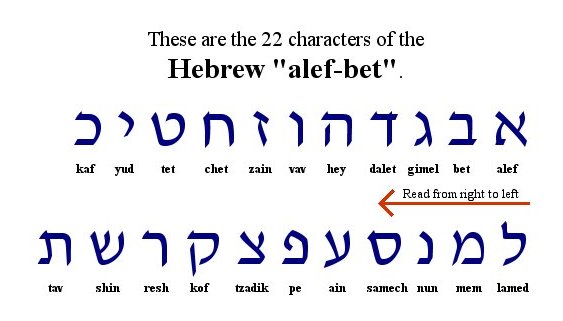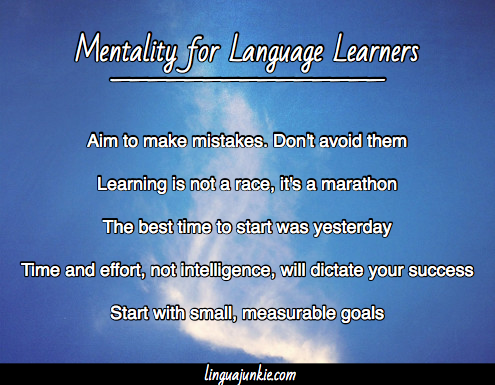Hello Junkies!
So, what’s the Hebrew language really about? Is it easy?
Difficult? Will it help you with Biblical Hebrew? (It will) Here’s the QUICK and SOLID introduction to Hebrew. All the facts, basics and things that you need to know – you will learn in 6 steps outlined below.
Hey, if you REALLY want to learn and speak to Hebrew with effective lessons from real teachers – Sign up for free at HebrewPod101 and start learning!
- Facts About Hebrew Language
- How to read & write Hebrew
- Speaking – How To Introduce Yourself
- Basic Hebrew phrases
- Is Hebrew Hard To Learn?
- The Next Step: Hebrew Lessons, Books

1. Facts About Hebrew Language
So what are the Hebrew basics that you should know?
Well, first, it’s one of the world’s oldest languages. It was pretty much a dead language (the spoken part of it, at least) until it was resurrected and re-popularized by Eliezer ben Yehudah. Here are some facts to get you acquainted:
- Originally started over 3 to 4 thousand years ago.
- Over 9 million speakers worldwide
- Hebrew contains 22 characters
- Written and read from right to left.
- Verbs have different genders depending on the speaker
- Modern Hebrew is used as the current language. Biblical Hebrew is used for prayer.
- Learning Modern will help you with Biblical Hebrew – but more importantly – allow you to speak with real Israelis.
2. How to read & write Hebrew
You need to learn the Hebrew alphabet – also known as the Alefbet. There are some tricky parts:
- as mentioned above, it’s written and read from right to left.
- these characters are completely different. you WILL need to write them out again and gain.
- there are no vowel “letters.” Instead, there are patterns of lines/dots around characters that signify which vowel the consonant uses.

To learn how to write (and read) Hebrew, please check out my guide at the link below. This should cover the Alphabet in its entirety:
3. Speaking – How To Introduce Yourself
In terms of speaking, there are some sounds that aren’t native to English.
- The R Sound. The pronunciation of R in Hebrew is a a throaty /guttural sound. Similar to French.
- And the Ch sound is a rough H sound. It sounds more like K and H together. Again, a throaty/guttural sound.
To get a good idea of what Hebrew sounds like, check out a sample dialog – just press play.
Other than that, once you have mastered the Alphabet, you can start learning, reading and saying basic words phrases. This will be the next step that will get you speaking Hebrew.
To get you started, here are some basic phrases to introduce yourself:
- Shalom – Hello
- Sh’mi (name) – My name is (name)
- Naim meod lehakir ot-ha – It’s a pleasure to meet you
You can learn more phrases for Hebrew self introductions at the link below.
4. Basic Hebrew Phrases
What’s an introduction to Hebrew if you don’t actually learn to speak?
Most people typically start with greetings and introduction. You can learn your full intro at the link above. And here’s how to greet and thank people.
Again, just basic phrases to warm you up.
- Toda raba – Thank you very much
- Bevakasha – You’re welcome
- Bevakasha – Please
- Shalom – Hello, Goodbye
- Boker tov – Good morning
- Tzooraim tovim – Good afternoon
- Erev tov – Good evening
Now, let’s get to the big, juicy question.
5. Is Hebrew Hard To Learn?

This depends on the type of person you ask.
Naturally, Arabic speakers can learn it easier. Why? The languages are within the same family and are somewhat similar. Like Russian and Bulgarian. Or French and Italian.
However, that aside, let’s talk about the person themselves.
Whether Hebrew is hard, or easy, depends on you. Here are some questions to ask yourself.
- Have you learned any other language before? The second one is usually the hardest one for most learners – regardless of what language – because it’s a new experience. By your 3rd, you’ll start getting the hang of how learning a language works for you.
- Do you often shy away from learning new things?
- Do you see languages as a tough challenge that only geniuses are capable of?
- Are you too “busy” to learn another language? This is a major red flag.
- Do you stop yourself from new things because they’ll take “too much of your time?”
The language does contain elements that English speakers are not used to. No vowel letters. New sounds. Completely different characters. All of these issues can be beaten through sheer practice and memorization.
No intelligence necessary. Just persistence.
But, If you answered “Yes” to any or most of these questions above, then yes, it will be hard. Because you’ve already convinced yourself it’s hard without actually LEARNING. It seems like your thinking is geared towards “things are hard and I don’t want to commit time.”
The fact is, Hebrew simply takes time to learn.
You can think it’s hard. Smarter learners don’t think of it as “easy” or “hard,” they just see it as something to keep working on. Why? Because it takes time.
And with enough time, your language only improves.
6. Hebrew Lessons
You’ve made it this far! This part is where 95% of people are weeded out. Either they’ve stopped reading the article to go look at Facebook or… they think it’s too hard. It’s completely normal. Anyone can learn but most don’t think they can.
So, if you’re here, you want to learn – what’s the next step?
1. Speaking Hebrew.
For this, you need a native speaking tutor. If not now, then later. If you don’t have one immediately on hand and want to just start at your pace – there are online courses with real teachers. For example:
- Learn HebrewPod101.com: Learn Hebrew conversation from Beginner to Advanced with 500+ Audio & Video lessons from real teachers. This is nice because you can watch/listen, review and practice at your own pace. Good for any computer or smartphone device. Be sure to visit HebrewPod101 and sign up up for free. You’ll also get the Hebrew word of they when you join to start on your vocabulary.
2. Reading, Writing, Grammar.
Honestly, a textbook should cover all of these. And what’s good is that it guides you through from ZERO to reading, writing and understanding. I suggest to visit Amazon.com, search for Hebrew language textbooks and read the reviews to see what’s good. Or, just click on the ones below.
3. Study Tools.
- Flashcards: One of the most loved study tools for learning vocab are Flashcards. Especially spaced repetition flashcards that test you on words you struggle with and skip the easy ones. HebrewPod101 offers them. There are plenty of other flashcard apps that do the same thing.
- Anki is another famous spaced repetition flashcard system for the computer.
4. Your Learner Mentality
Believe it or not, there is a “good” way of learning any language. And it has to do with your mentality – or how you think. Here are some guidelines that will help you be a great learner:
- Aim to make mistakes. Don’t avoid them – Mistakes lead to corrections which leads to improvement. You cannot improve without mistakes. People that are afraid of mistakes are making the biggest failure of all.
- Learning is not a race, it’s a marathon – And Rome wasn’t built in a day.
- Don’t think of success/ the big goal of fluency too much – This will only make you stressed out and anxious. So many people quit because they think they’re not progressing fast enough to reach their ambiguous faraway goal.
- Start with small, measurable goals – Learn 100 words in a month. Finish 2 chapters in 2 weeks. Speak 5 minutes of Hebrew by this month. All of these small goals are measurable, and even better, achievable. Start small. Again, people quit because they set big goals and don’t know how to approach them.
- The best time to start was yesterday – The next best time is now.
- Time and effort, not intelligence, will dictate your success – Anybody that’s talented at something has this – they simply put in a lot more time than anyone else. In the context of mastering Hebrew, time is your friend.

And most importantly, negative attitudes do not help with learning. A positive attitude is helpful. A neutral attitude is even more helpful (because, you can’t always maintain one mood 🙂 ).
And that’s it.
What do you think? Be sure to leave a comment and share this article!
– The Main Junkie
And if you REALLY want to learn to Hebrew with effective lessons from real teachers – Sign up for free at HebrewPod101 and start learning!


I lived in Tel Aviv in Israel for 5 years due to work and so as you can imagine, I had to learn the Hebrew language in a very short space of time. Just offering my advice to anyone else looking to learn this language and that is to follow the Practical ‘Learn Hebrew’ program at: http://solution2solve.com/learnhebrew It worked very well for me as I was completely fluent in the language in well under a year from following it and I didn’t have to pay massive teacher fees like my work originally advised. An absolute life saver for me and… Read more »